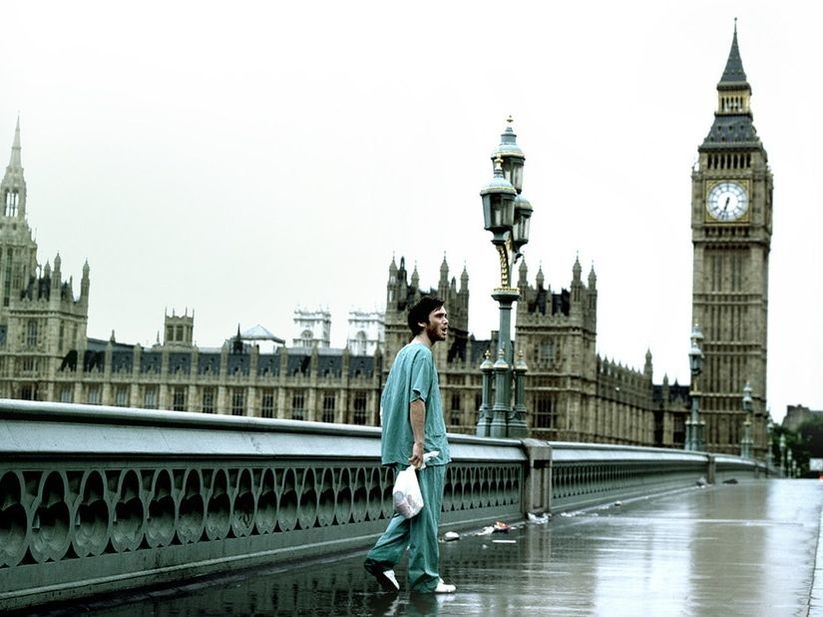I consider 28 Days Later to be one of the best horror films of the 21st century. It's one of the first films to manipulate the formula of the zombie film into a terrifyingly original apocalyptic tale. The scariest thing about the film is its harsh realism, how it handles the reality of a nationwide virus wiping out nearly all life in the U.K. Coupled with powerful performances all around, 28 Days Later has resonated with me ever since I first saw it.
The creation of the rage virus is neck-deep in the realm of possibility, with scientists experimenting biological weapons on monkeys. One of these monkeys bites an animal rights activist, igniting the film's vicious plague. As I said, the realism is what takes this film out of our nightmares and puts it into our possible future. After all, the most powerful countries in the world are constantly experimenting with chemical weapons and germ warfare. If something ever went horribly wrong, you can bet a 28 Days Later-esque scenario isn't far off. The cinematography helps make the film feel more lifelike, with dark tones and shadows in the rain that add to the overall creepy atmosphere. 28 Days Later also does a tremendous job of showing how survivors would react to a world like this. Needless to say, it's deeply disturbing and makes for a hellish third act. I've always considered this film a landmark horror flick that reinvigorated the zombie film, as it is equal parts scary and thought-provoking. |
